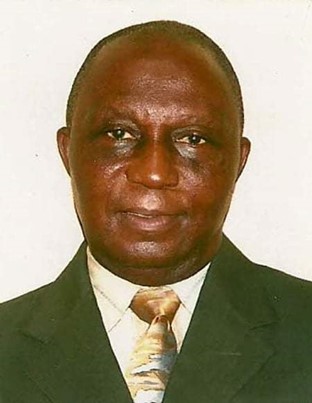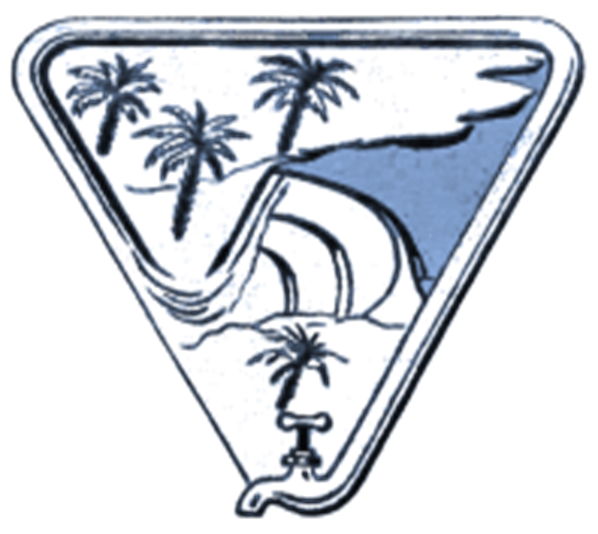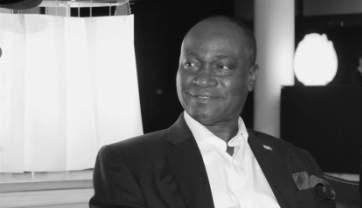Fighting corruption in Sierra Leone, a comparative analysis
Corruption undermines the socio-economic and political growth of a given nation and a country that fails to tackle this challenge is bound to fail. Corruption has been a major hindrance to the socio economic development of Sierra Leone and a contributing factor to events that led to our decade long civil war. (Photo: John Pa Baimba Sesay, IA, China)
Corruption is one of the obstacles to democracy and good governance. In 1999 the Commonwealth Finance Ministers, commenting on the Framework for Commonwealth Principles on Promoting Good Governance and Combating Corruption, noted that “Good governance is not a luxury but a basic requirement for development. Corruption, which undermines development, is generally an outcome and a symptom of poor governance. It has reached global proportions and needs to be attacked directly and explicitly…where corruption is ingrained and pervasive, especially at the highest political levels, its eradication may require a sustained effort over a protracted period of time. However, the policy of “zero tolerance” should be adopted from the outset, demonstrating a serious commitment to pursue the fight against corruption. (Source: http://www.thecommonwealth.org).
In Sierra Leone, the fight against corruption has been on for over a decade. Political pundits are of the conviction, however that immediately following its founding, the ACC was lacking the political support, but for the election of President Ernest Bai Koroma. By June of 2000, that was following the establishment of the Anti Corruption Commission, Sierra Leone’s then Marine Resources Minister Lawrence Kamara was accused of embezzling government funds. Reports say, he was forced to resign but was not charged. In March 2001, then Agriculture Minister Dr. Harry Will was convicted of embezzling funds from World Bank development funds. There was an interesting twist in the case as Justice Mohamed Taju Deen, who fined Will a mere Le 500,000 (US$250), was in turn convicted of having accepted bribes in trade for the light sentence.
Soluku Bockarie, then permanent secretary at the Ministry of Education, Momoh Pujeh, then Transport Minister and now late, among others had their stories to tell under Kabba (h) but what was clear in all of these said cases was that, the ACC was more of a political weapon than was seen performing the real purpose for which it was created. In 2001, independent Freetown tabloids Democrat and For di People, which is edited by Paul Kamara, now Minister of Sports, accused then Justice Minister Solomon Berewa of accepting bribes in exchange for arranging the release of an Israeli and a Russian held in Sierra Leone, pending extradition to Colombia on drug charges. No action was taken. In fact as a reprisal measures, on Nov. 2, 2001, the ACC began investigating For di People editor Paul Kamara for tax evasion.
The 20008 Anti-Corruption Act established the ACC as an independent commission to investigate government corruption. The ACC was partially funded and staffed by foreign (mostly British) experts, although in 2007 the British government withdrew support claiming the ACC were not given broad enough powers. Journalist David Tam Baryoh once wrote, that “…though President Tejan Kabbah has not yet been directly accused of corruption, he has been slow to order investigations of his political protégés, as in the case of Education Minister Alpha Wurie and Justice Minister Solomon Berewa. Moreover, there are indications that the ACC may be deteriorating into a political tool to track down the president’s detractors…” (Source: http://www.worldpress.org/Africa/352.cfm). This was how the issue of corruption was like in Sierra Leone. At the peak of corruption during the Kabbah regime, the British, the largest single contributor of aid in Sierra Leone stopped all aid coming to Sierra Leone in 2007. Corruption had pervaded our society so much that you were looked down upon if you had the opportunity to be corrupt and not done so.
But today, the fight against corruption has taken a different scenario altogether, as a result of the leadership role that President Koroma has continued to play.
One campaign message of President Koroma, when seeking the democratic mandate of Sierra Leoneans was his desire to give premium to the fight against corruption. Addressing parliament in 2010, President Koroma spoke of how his “…Government has stepped up the fight against corruption. With prosecutorial powers granted it by the 2008 Anti Corruption Act, the Anti-Corruption Commission (ACC) has ensured the highest rate of prosecution and conviction for corruption related offences in the country’s history. The ACC has also recovered billions of Leones from persons convicted or investigated for corrupt practices…” (Source: http://www.cocorioko.net/?p=3334).
In August 2008, barely a year in office and quite contrary to his predecessor, the new government launched a new National Anti-Corruption Strategy and enacted one of the toughest anti-corruption legislations in all of Africa. The 2008 Act provides for the “establishment of an independent Anti-Corruption Commission for the prevention, investigation, prosecution and
Punishment…” (http://www.sierra-leone.org/Laws/2008-12.pdf ).The act, amongst other provisions, includes offences on illicit enrichment, abuse and misuse of office, provides protection for whistleblowers and informers, and makes it compulsory for all civil servants to declare their assets. One area where the country’s zero tolerance on corruption has become more evident is in the political will to empower the ACC to serve its purpose, as provided by President Koroma. With apparent government support, a framework for case selections and prioritization has been developed and is being implemented. Priority areas include procurement, revenue collection, and delivery of essential public services and the judiciary.
The prosecutorial powers granted by the 2008 Anti Corruption Act, has seen the establishment of a prosecution unit. The result has been the highest rate of prosecution and conviction for corruption related offenses in the country‘s history. We have also seen the appointment of a robust management team at the Anti-Corruption Commission. In just 2010, a total of 199 cases were lodged with the ACC- up from 33 in 2007, when President Koroma was elected. Also a total of $ 2440, 000 worth of stolen funds was recovered that same year. As a way of stepping up prevention, there has been an Anti- corruption System and Process Reviews of government Ministries, Departments and Agencies (MDAs) for the purpose of improving their systems and processes. Comprehensive measures to strengthen public financial management in both Central Government and Local Councils have been taken by the ACC under the Presidency of Ernest Bai Koroma. With the launching of the Integrated Public Financial Management Reform Programme (IPFMRP), it is hoped, that there will be an increase in ensuring sustainable improvement in the country’s fiscal governance. There has been a comprehensive review of the Government Budgeting and Accountability Act (2005), financial Management Regulations (2007), Public Procurement Act (2004) and Procurement Regulations (2006) to strengthen the legal framework for budgeting, accounting, recording and procurement. As a demonstration of government’s commitment to transparency, there has been the establishment of a Performance Audit Unit in the Office of the Auditor General to go beyond traditional financial audit and appraise and measure the impact of public service delivery on citizens.
There has been an improved corruption status in Sierra Leone since President Koroma was elected in 2007. Since the enactment of the most aggressive anti-corruption legislation in Africa, the country has made significant strides in promoting integrity and fighting widespread Corruption. The Global Corruption Barometer conducted by the Transparency International found that 73% Sierra Leoneans – up from 64% in 2009 – now believe that the country’s effort to fight corruption has been effective. Internationally, Sierra Leone moved from 1.9 in 2009 to 2.4 in 2010 in the Transparency International Index. The Global Integrity Scorecard published that among the lower and middle income countries in the world, Sierra Leone achieved important anti-corruption improvements in 2010. For these achievements, the ACC bagged the World Bank‘s prestigious Integrity Award – for recovering stolen government property.
2008 ranking shows that Sierra Leone was ranked the worse ever reflecting the last year of our former government. When President Koroma took over governance, things got better. We moved from a score of 1.9, our lowest ever to 2.5, which is not an easy accomplishment. In the World Governance Indicators put out by the World Bank, Sierra Leone improved to the 25 percent with a ranking score of 25.4 in 2010 from 18.2 in 2009 and 17 in 2008. At one point in 2005 and 2006 it was at 12.7 for both years, but it jumped to 18.9 in 2007. Overall, it is showing a picture that the control of corruption has improved over the years to where it now sits at 25.4
At the level of public education, the fight against corruption has today been taken to the door steps (http://news.sl/drwebsite/publish/article_200520802.shtml) of people as a result of the effective public education drives that the ACC has embarked upon in the last five years. Even in the Mabonto community in the north of Sierra Leone, people now know what it means, when we talk about fighting corruption. (http://www.sierraexpressmedia.com/archives/44697).This is one positive step that we have seen in the fight against corruption.
Stay with Sierra Express Media, for your trusted place in news!
© 2012, https:. All rights reserved.





